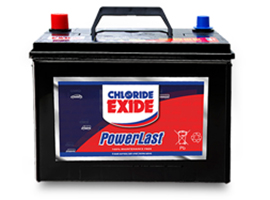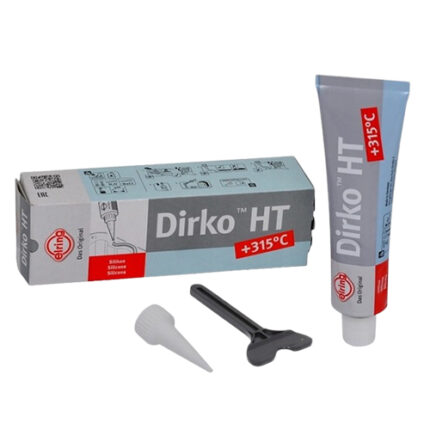-10%
Get Compressor Oil – Air Con 80ML ND-OIL8 in Kenya
Compressor oil plays a vital role in the operation of air conditioning (AC) systems, whether in vehicles or stationary setups. The proper functioning and longevity of an AC system rely heavily on using the right type and amount of oil. In this detailed guide, we’ll explore the purpose, properties, benefits, maintenance tips, and practical aspects of using 80ml of compressor oil for air conditioning systems.
What is Compressor Oil?
Compressor oil is a specialized lubricant formulated to work with AC compressors. It minimizes friction and wear between the moving parts of the compressor, ensuring efficient operation. This oil is designed to handle the high pressures and temperatures generated within the AC system while maintaining compatibility with refrigerants.
Why is Compressor Oil Important?
The primary functions of compressor oil are:
- Lubrication: Reduces friction between moving parts like pistons, rods, and bearings, preventing wear and tear.
- Cooling: Helps dissipate heat generated during the compression process, reducing the risk of overheating.
- Sealant Support: Enhances the sealing properties of the refrigerant, ensuring no leaks occur.
- Corrosion Prevention: Protects internal components from corrosion caused by moisture or refrigerant breakdown.
- Noise Reduction: Diminishes operational noise by cushioning mechanical interactions.
Without adequate compressor oil, the AC system may suffer from reduced efficiency, increased wear, and potential failure.
Key Properties of Compressor Oil
High-quality compressor oil is characterized by the following properties:
- Viscosity Stability: Maintains optimal flow at various temperatures to ensure consistent lubrication.
- Thermal Stability: Resists breaking down at high operating temperatures.
- Moisture Tolerance: Low hygroscopic nature to prevent water absorption and system damage.
- Refrigerant Compatibility: Fully compatible with the refrigerant used in the system (e.g., R-134a, R-1234yf, or R-410a).
- Anti-wear Additives: Contains compounds that enhance durability under extreme conditions.
Types of Compressor Oil
Compressor oils differ based on their formulation and compatibility with specific refrigerants:
- Mineral Oil: Suitable for older systems using CFC refrigerants like R-12.
- Polyalkylene Glycol (PAG) Oil: Commonly used in automotive AC systems with R-134a refrigerant.
- Polyolester (POE) Oil: Compatible with HFC refrigerants like R-410a, commonly used in modern stationary systems.
- Alkylbenzene (AB) Oil: Preferred for systems using HCFC refrigerants like R-22.
80ml Compressor Oil: This quantity is typical for small automotive or compact AC systems where precise lubrication is necessary without overfilling.
Benefits of Using Compressor Oil
- Enhanced Compressor Lifespan: Proper lubrication reduces wear, significantly increasing the lifespan of the compressor.
- Improved Energy Efficiency: Reducing friction within the system helps the compressor operate smoothly, consuming less energy.
- Reduced Maintenance Costs: By preventing mechanical failures, compressor oil minimizes the need for frequent repairs.
- Optimal System Performance: A well-lubricated compressor ensures consistent cooling performance and prevents system strain.
- Environmental Protection: Reduces the risk of refrigerant leakage, contributing to environmental safety and regulatory compliance.
Maintenance Tips for Compressor Oil
- Use the Correct Type of Oil: Always check the manufacturer’s recommendations to ensure compatibility with your AC system and refrigerant.
- Measure the Correct Quantity: Overfilling or underfilling the oil can negatively impact system performance. 80ml is typically sufficient for small systems.
- Regular System Checkups: Periodically inspect the AC system for leaks, abnormal noises, or reduced cooling efficiency, which might indicate oil depletion or contamination.
- Replace Oil During Repairs: If the compressor is replaced or serviced, drain the old oil and refill with the recommended amount and type.
- Avoid Contamination: Ensure cleanliness during oil replacement to prevent dirt or moisture from entering the system.
- Store Oil Properly: Keep unused oil sealed and stored in a cool, dry place to maintain its properties.
Signs of Compressor Oil Issues
- Unusual Noises: Grinding or knocking sounds may indicate insufficient lubrication.
- Reduced Cooling Performance: A lack of oil can cause the compressor to overheat, reducing the system’s ability to cool effectively.
- Visible Leaks: Oil stains around the compressor or AC lines suggest a leak that needs immediate attention.
- Compressor Overheating: Insufficient oil can lead to excessive heat buildup, risking compressor failure.
- Increased Energy Consumption: An improperly lubricated compressor requires more energy to function, increasing operational costs.
How to Add Compressor Oil
- Identify the System Requirements: Consult the system manual for the recommended type and quantity of oil.
- Drain Old Oil: If replacing the oil, completely drain the old oil to avoid overfilling.
- Measure 80ml of Oil: Use a precise measuring tool to ensure accuracy.
- Add Oil to the Compressor: Locate the oil fill port on the compressor and pour in the measured oil.
- Reassemble and Test: Reconnect all components and test the system to ensure proper operation.
Environmental Considerations
Compressor oil, when disposed of improperly, can harm the environment. Always adhere to local regulations for recycling or disposing of used compressor oil to minimize environmental impact.
FAQs About Compressor Oil
- Can I Use Any Compressor Oil? No, using the wrong oil can cause system incompatibility and damage. Always follow the manufacturer’s guidelines.
- What Happens if I Overfill the Oil? Overfilling can lead to reduced cooling performance, increased pressure, and potential compressor damage.
- How Often Should Compressor Oil Be Replaced? Typically, the oil lasts the compressor’s lifetime unless there’s a leak or the system is repaired. Check the system periodically for signs of oil depletion.
- Is 80ml Enough for All Systems? While 80ml is suitable for small or specific automotive systems, larger systems may require more oil.
Conclusion
Compressor oil is the lifeblood of an AC system, ensuring smooth operation, efficiency, and longevity. The 80ml quantity is ideal for compact systems, making it an essential component for automotive and small-scale air conditioning setups. By understanding its properties, benefits, and maintenance tips, you can keep your AC system running optimally and extend its service life.
Remember, proper care, and attention to detail, including using the right oil type and quantity, are crucial to preventing costly repairs and maintaining peak system performance.
Follow us on Facebook for more parts.




Reviews
Clear filtersThere are no reviews yet.